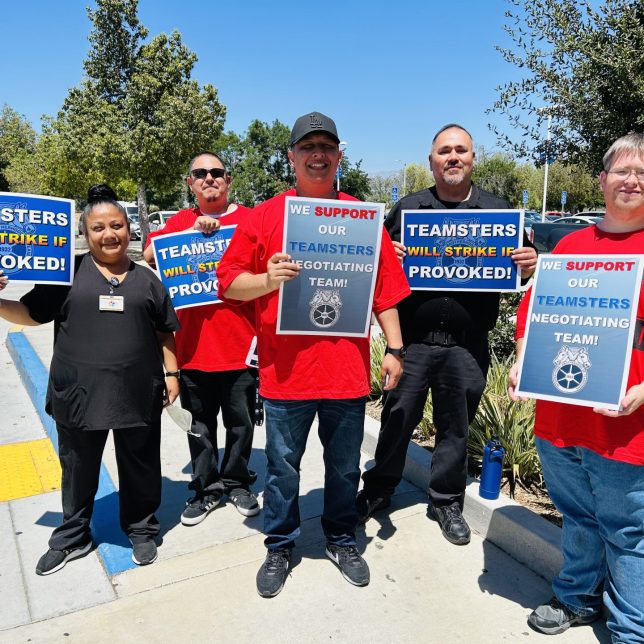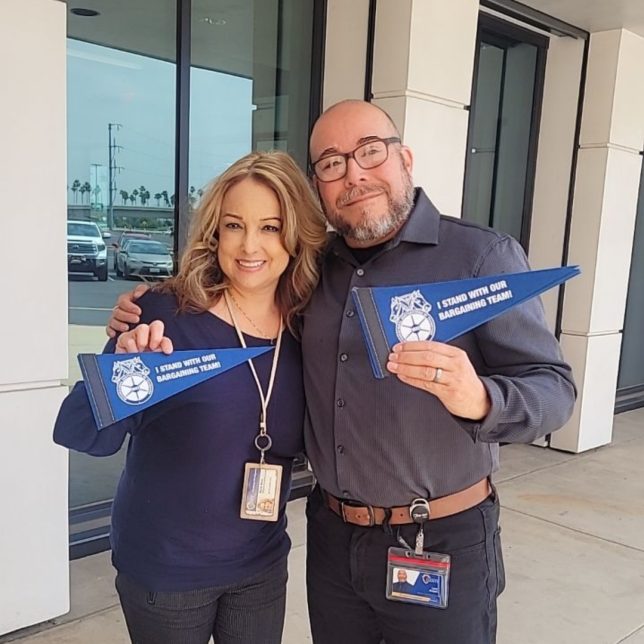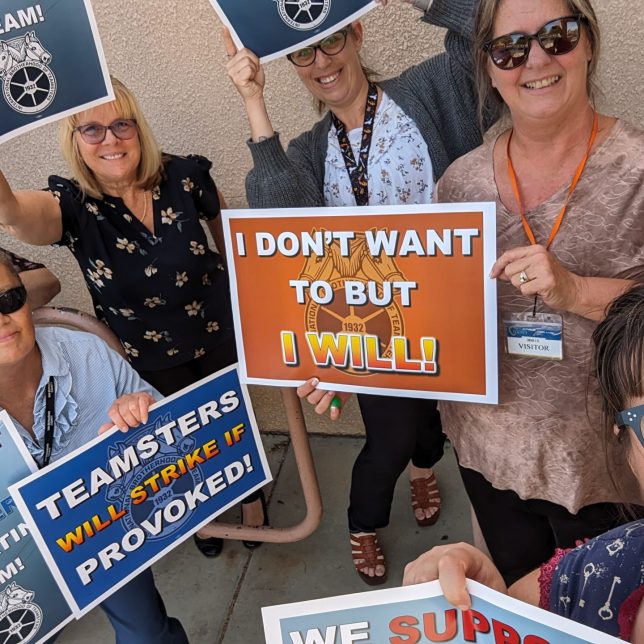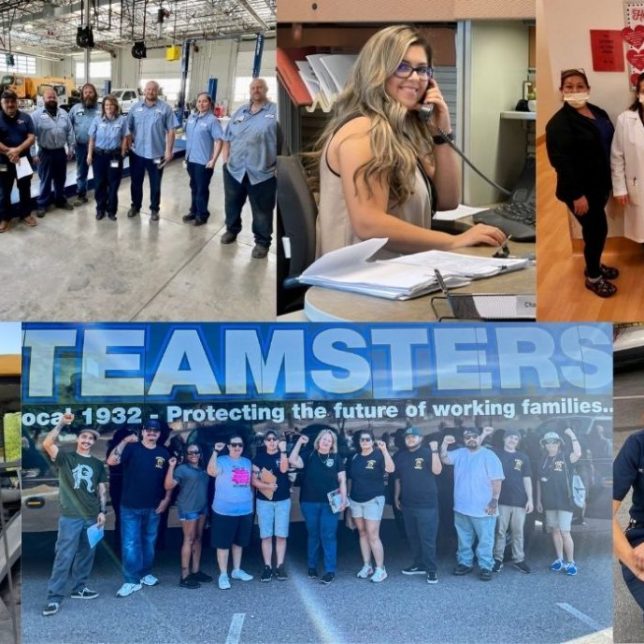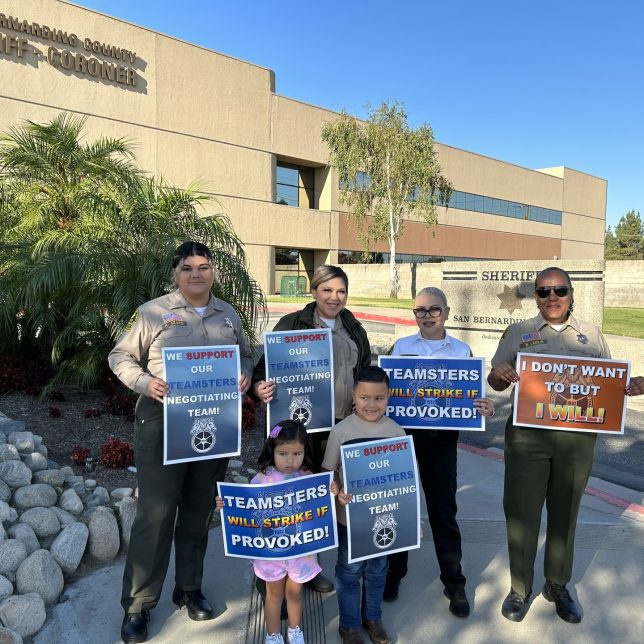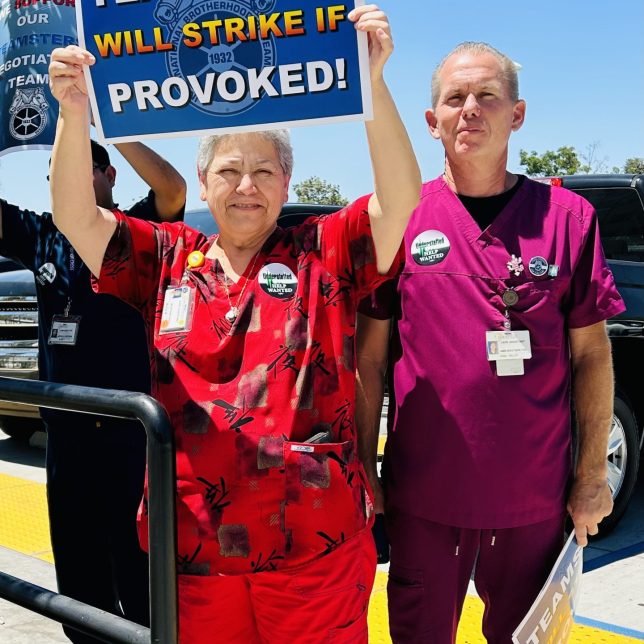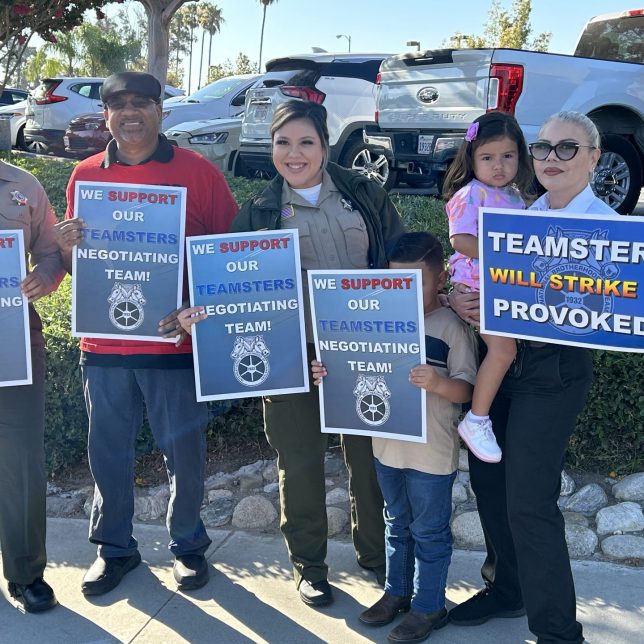Janus won’t stop our union. We’re Union Strong.
The following is a message from Kathleen Brennan, an 11-year employee of the San Bernardino County Information Services Department, on Janus v AFSCME — the anti-union U.S Supreme Court ruling that came down on June 27th:
Working people have power when they come together in a union. It’s how Mark Janus, a Child Support Specialist in Illinois, has benefited from consistently strong pay increases; it’s why he can expect low medical benefit costs; it’s how the essential public services he provides are defended from budget cuts. On June 27th, the U.S Supreme Court ruled that Mr. Janus does not have to pay his fair share in funding the public-sector union that organizes and negotiates to win these standards that he enjoys.
As an 11-year employee of the San Bernardino County Information Services Department, I help our Department maintain the County’s digital backbone. It is work that helps to ensure that residents get the smoothest and best possible service throughout County departments and agencies. Despite these crucial responsibilities, I know that fairness and dignity at my work would not come so easy without the power in numbers provided by the union I belong to, Teamsters Local 1932. Our voice is amplified when we stand together as working people who care about what we do for a living. I know the resources I need to do my job properly will be there because of this amplification. Paying my fair share of union dues is important to maintain these resources.
It is from this perspective that I am incredibly disappointed that a fellow public servant like Mr. Janus is the public face of a decision will weaken our ability to get residents the best possible service and be compensated fairly for the labor behind that service. Mr. Janus may do important work like I know the Child Support Specialists in San Bernardino County do, but in the instance of Janus v AFSCME he is nothing but a patsy.
Mr. Janus, of course, is not bankrolling his case. He is, instead, being boosted by a well-documented web of corporate-front groups backed by activist billionaires. Why they start this fight? A mountain of research reveals a decisive truth — unions help working people build the power needed to secure a seat at the table and negotiate a fair return on their time and labor. In the mid-20th century, when union participation was at its peak, income inequality was at its lowest — the foundations for the American Dream. When union membership is as low as it is now, the richest in this country have an easier time getting richer.
Corporate extremists, over the past few decades, have effectively drowned out the voices of everyday Americans. They’ve imposed their will on the conditions that shape American life through the brute force of their riches. Financial concentration has led to political power, with the ability to sway elections and keep politicians at their beck and call. Despite more Americans having a favorable view toward unions now than in many years before, it is this concentration in power that has enabled the richest in our nation to dilute labor law to the point that anti-union intimidation, misinformation, and lucrative industry in “union avoidance” is the rule rather than the exception.
Throughout the Inland Empire, working people bear the brunt of these conditions every day. The so-called saving grace of the region in the aftermath of the Great Recession — it’s much-heralded logistics and warehousing industry boom — has been a hollow victory. It has put the Inland Empire at the heart of supplying Americans their products, and we undoubtedly have jobs in the region — plenty of them. The problem is that the jobs sure don’t pay enough for a family to thrive on. A recent analysis by the Brookings Institute found that 43% of region residents were in families that struggled to make ends meet in 2016, reportedly higher than before the recession.
People need a higher wage and unions are the vehicle for getting there. Just next door in Los Angeles, a strong union culture created reliable and broad upward economic mobility at distribution centers like the ones still proliferating throughout our home communities. While we certainly have a strong union presence in the Inland Empire, with members across many unions delivering our packages, teaching our children, nursing us back to health, and beyond, it is the logistics industry that has gone largely unchecked by elected officials while they compete in a race to the bottom for the right to brag about number of they’ve jobs created. It’s like clockwork: developers and corporations first have to build and employ residents because of our proximity to the ports and our relatively cheap land. Then, they rake in an absurd amount of public funds for unnecessary subsidies, only to end up paying their employees a pittance while they roll in the profits — it’s shameful excess, especially as the working families of our region continue to struggle.
Many of the more than 14,500 public employees that make up Teamsters Local 1932 work in areas where they must provide public assistance or other safety net services to those who have felt the real pain of this business-as-usual underdevelopment. My fellow Teamsters see their hurt up-close. Our union believes it is no surprise that the U.S Supreme Court sided with corporate extremists in overturning more than 40 years of precedent by ruling the fair share fee unconstitutional, only because it’s always been a part of these activists’ plan. They plan to continue taking away the power of working people, and eventually take away our freedom to stand together completely. But as experts of our community — not some outside entity, but an organization rooted deep in the places we call home across the region — we will stay union strong and fight for working families here. We will not stop until we can transform the Inland Empire into a place where the American Dream is a reality for all Americans once again. It must be done.

